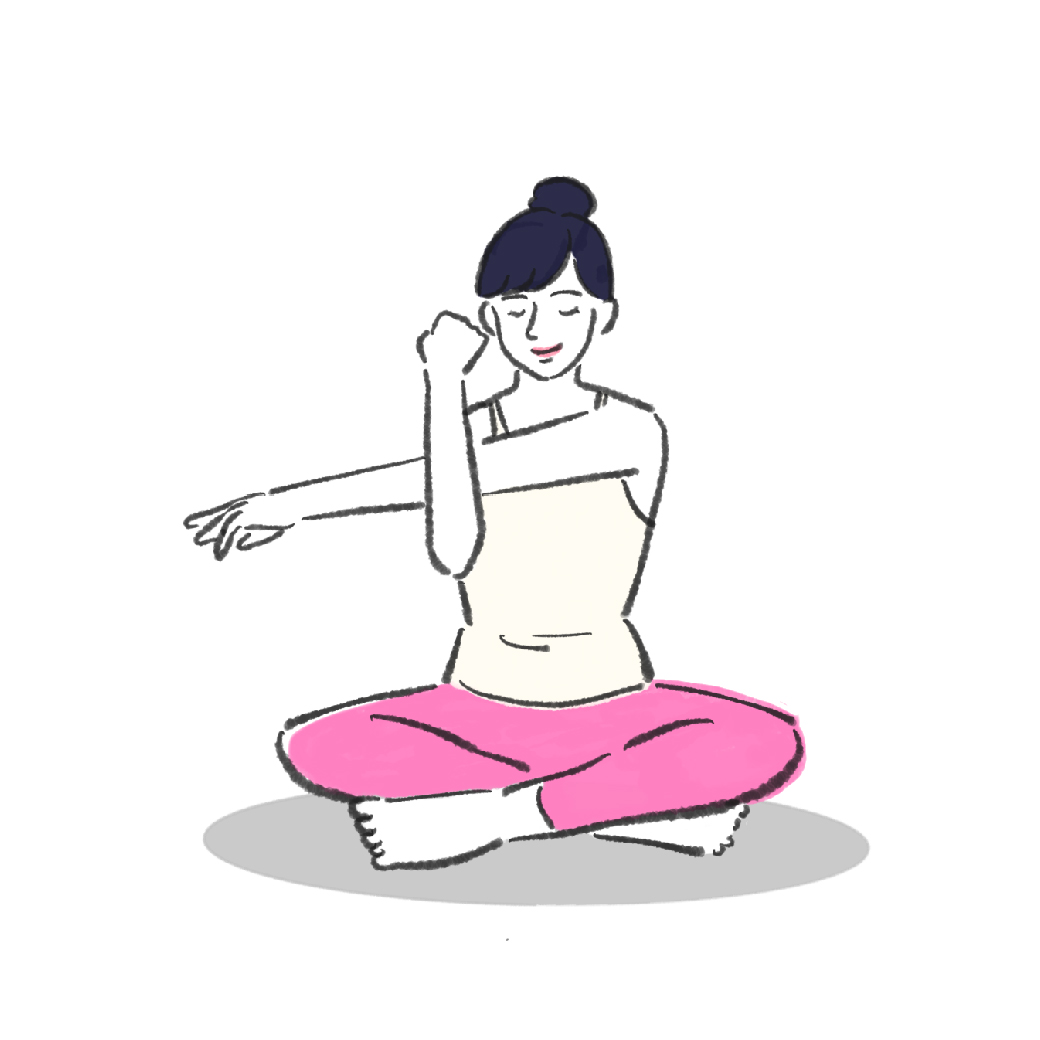
Improving the quality of your sleep | What are the benefits of good sleep and how can you improve it?
SUMMARY
- What is good quality sleep?
- The benefits of improved sleep quality
- Causes of poor sleep quality
- To improve the quality of your sleep
- ·summary
If you still feel tired even after sleeping, or if you don't feel refreshed even after sleeping for a long time, these may be due to a decline in the quality of your sleep.
In order to avoid illnesses caused by mental disorders and reduced daytime performance due to lack of sleep and fatigue, we recommend that you learn about and practice ways to improve the quality of your sleep.
What is good quality sleep?
One of the indicators of sleep quality is the feeling of restlessness.
This is the state in which you feel rested through sleep.
The feeling of restfulness is influenced not only by the amount of sleep, but also by the sleeping environment and lifestyle habits.
In addition, there are two types of sleep for humans: REM sleep, which rests the body, and non-REM sleep, which rests the brain. The balance between REM and non-REM sleep cycles is important for feeling rested.
The benefits of improved sleep quality
It has been found that improving the quality of sleep can help relieve physical and mental fatigue built up during the day, improve immune function, and lead to disease prevention and health maintenance.
Here are some benefits to improving the quality of your sleep.
● It has the effect of relieving fatigue.
Good quality sleep will help you recover from mental and physical fatigue.
When the balance of the autonomic nervous system is disturbed, the body is unable to switch between the sympathetic and parasympathetic nervous systems properly, and the sympathetic nervous system is constantly stimulated, leading to a state of tension and the accumulation of stress and fatigue.
By getting good quality sleep, it is possible to release tension in the brain and enhance the function of the parasympathetic nervous system. In particular, non-REM sleep is dominant in the parasympathetic nervous system, which leads to recovery from fatigue.
Make good use of sleep to regulate your autonomic nervous system and avoid feeling tired the next day.
- It has the effect of relieving stress
Sleeping helps the brain relax and is also effective in relieving stress.
While you sleep, your brain controls visual and auditory information and processes information that comes in during the day.
We organize, store, and erase information by remembering only the information that is necessary and deleting unnecessary information.
This helps to solidify the knowledge and relieve stress.
Lack of sleep can also cause fatigue, emotional instability, and impaired judgment, negatively impacting quality of life.
By getting good quality sleep, you can reduce the causes of stress and eliminate accumulated stress, allowing you to relieve stress in a comprehensive manner.
● Improve immune function and maintain health
It is said that there is a deep connection between sleep and immune function, and good quality sleep is effective in preventing colds and infectious diseases.
It has also been found that getting adequate sleep reduces the risk of developing lifestyle-related diseases and depression.
To maximize these effects, it is important to make daily efforts, just like with other lifestyle habits such as diet and exercise.
Good quality sleep can change the way you spend your day.
Being active during the day creates a positive cycle that leads to easier falling asleep and deeper sleep.
● Prevents obesity and improves skin condition
It has been found that when you get less sleep, the secretion of the hormone leptin, which suppresses appetite, decreases, and the hormone ghrelin, which increases appetite, increases.
Getting good quality sleep can help balance hormone secretion and prevent obesity.
In addition, during non-REM sleep, the secretion of growth hormone, which promotes improved metabolism and cell repair, increases.
The secretion of growth hormone is expected to have effects such as improving skin tone and promoting skin turnover.
In addition, melatonin, which is secreted more at night, not only regulates sleep rhythm but also has the effect of removing active oxygen, making it effective in anti-aging.
Causes of poor sleep quality
In order to improve the quality of your sleep, it is important to pay attention to your habits before going to bed and how you spend your daily time.
Sometimes your casual nighttime routine can cause your sleep quality to decrease.
Here we will explain in detail the causes of poor sleep quality.
● Irregular lifestyle habits
Habits such as drinking alcohol, smoking, and taking hot baths before going to sleep can stimulate the sympathetic nervous system and reduce the quality of your sleep.
Before you start thinking about the quality of your sleep, you need to review and correct your lifestyle habits.
Habits that keep your brain alert just before going to sleep will also reduce the quality of your sleep.
The reason we feel sleepy at night and wake up in the morning is due to the internal clock that we have.
Improper lifestyle habits can disrupt the body's biological clock, resulting in poor quality sleep.
Stress
Psychological stress, such as worries and anxieties about work or personal matters, is also one of the causes of poor sleep quality.
Strong stress is expected to disrupt the autonomic nervous system.
When you feel stressed, your sympathetic nervous system becomes more active, which can have adverse effects such as making it harder to fall asleep or waking up in the middle of the night.
Being too conscious of not being able to sleep can also cause psychological stress.
To get good quality sleep, it is important to sleep in a relaxed state where the parasympathetic nervous system is dominant.
Sleeping environment
The quality of your sleep may also be reduced if the bedroom environment, such as brightness, temperature, humidity, noise, or bedding, is not suitable for your body.
The important elements of a good sleep environment are the right light, temperature, and sound.
About an hour before you go to bed, dim the lights in the room, relax, and make sure your bedroom is quiet and at a comfortable temperature.
Being exposed to blue light from using a smartphone or watching TV before going to bed is also one of the causes of poor sleep quality.
To improve the quality of your sleep
In order to improve the quality of your sleep, it is important to improve your own habits and the environment around you.
Try to improve the quality of your sleep by gradually adopting measures that are appropriate for your situation, wherever possible.
Here are some ways to improve the quality of your sleep.
Adjust your diet
Make sure you eat a good breakfast.
Eating breakfast helps reset your body clock and prevents you from going to bed late and waking up late.
Even if you have regular eating times, it is a good idea to eat dinner at least two hours before going to sleep and avoid eating late at night.
Eating right before going to sleep or foods that take a long time to digest can cause your stomach and intestines to become active, disrupting your sleep.
● Form a habit of moderate exercise
Being physically active during the day and feeling moderately tired will lead to deep sleep at night.
This is because it is known that moderate exercise habits lead to a feeling of restful sleep.
In particular, aerobic exercise such as jogging and walking, and strength training using dumbbells, are said to improve the quality of sleep.
The recommended duration and frequency of exercise is at least 60 minutes of high-intensity exercise every day for children, moderate-intensity or higher exercise for as long as possible for adults, and low-to-moderate intensity exercise for less than 60 minutes several times a week for elderly people.
Bathing
Immersing yourself in lukewarm water (38-40°C) to warm your body sufficiently and relax is effective in helping you get a good night's sleep.
Bathing temporarily raises your body temperature, which then makes you feel sleepy when it drops, helping you fall asleep.
In terms of timing, taking a bath 2 to 3 hours before going to bed will coincide with the time when your body temperature drops, making it easier to get a deep sleep.
You can also use bath salts to make your bath even more relaxing.
Choosing a scent based on your favorite scent and the effect you want to achieve will help improve the quality of your sleep.
Bask in the morning sun
Exposure to morning sunlight wakes up the body and adjusts the body clock, making it easier to fall asleep at the right time.
The habit of opening the curtains and exposing yourself to morning sunlight after waking up resets your body clock and makes you feel sleepy 15 to 16 hours after exposure to sunlight.
The key to waking up refreshed is to expose yourself to morning sunlight immediately after getting up.
If you don't go to bed immediately after waking up, the timing when you feel sleepy will be shifted, and you may gradually start going to bed later and shift into nocturnal habits.
Improve your sleep environment
As mentioned above, adjusting your bedroom environment, such as temperature, humidity, light, and sound, to suit your needs according to the season will help improve the quality of your sleep.
It is best to have quiet sound, but if complete silence makes you feel anxious, it may be a good idea to play soothing music at a low volume.
When choosing bedding such as pillows and mattresses, try to choose ones that are the right height and firmness for you.
The ideal sleeping position is one that is close to standing, with an S-shaped curve from the back of the head to the neck maintained.
summary
In order to get good quality sleep, it is important to manage your daily habits, stress levels, and bedroom conditions.
Poor quality sleep can lead to decreased daytime activity and illnesses such as depression.
If you are taking self-care measures and still feel sleep deprived or fatigued, it is a good idea to see a doctor at a medical institution.
Article supervision

Yukiko Yoshii
Yoshii Clinic
After graduating from Osaka City University School of Medicine and working in the First Surgery Department at Osaka City University Hospital, he opened Yoshii Clinic in Esaka, Osaka.
He currently serves as director of Yoshii Clinic and chairman of the board of directors of Yubikai Medical Corporation.
The clinic operates under the concept of providing total support for health and beauty. In addition to early detection and treatment of gynecological diseases and cosmetic medicine, the clinic also focuses on a wide range of treatments for lifestyle-related diseases, including medical checkups, internal medicine, smoking cessation clinics, and sleep apnea syndrome.








